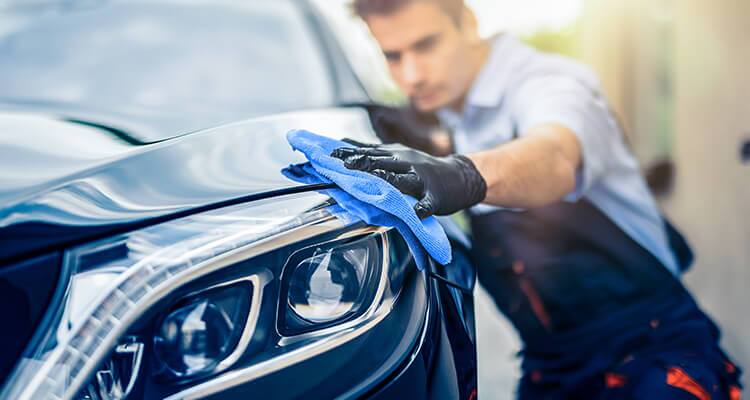Everyone would like to get a good deal when buying a car. A new car is quite a large financial commitment. Find out more about Demo Cars.
“Did you hear what happened to my car hunting? I managed to get this demo model, and they knocked off R10,000 from the purchase price!”
From time to time we hear of such deals, and so let us explore this a bit further.
Everyone, of course, would like to get a good deal when buying a car. Cars are not exactly cheap, and it is quite a large financial commitment when buying one. You have several choices when buying a car – a new car, a pre-owned car, and a demo car. Like most things in life, each one has its pros and cons.
What do we mean by a demo car?
A demo car is actually a new car that has been used a bit by a dealership. By that we mean that the car has only low mileage on it due to the fact that it was used by prospective buyers for test drives, and dealership managers may also have used the car to and from work. The mileage of demo cars is usually under 5000 km, which is really not much when the average car can go to 200 000 km. The demo car is usually about 6 months old. If you are considering keeping the car for say 10 years, it means only 5% of its time has been used up.
Why have a demo car in the first place?
The real purpose behind having a demo car is that the dealership can demonstrate to any prospective buyer what the car can get up to and how it feels to drive. Let us face it – how can anyone buy such an expensive item, which for many people takes years to pay off, and not test its capabilities first? A demo car is like an advertisement for that particular make and model, and its qualities will speak for itself. If the overall qualities are great, then the use of the demo model will stimulate sales.
Advantages of buying a demo car
A possible advantage of buying a demo model is that you basically get a new car for a price that is generally less than the cost of a new car. In most cases, the mileage of a demo car will be less than that of a pre-owned car. What is usually chosen as a demo car is if it is “upper-spec.” By this is meant that you can afford to buy a car that has greater specifications than that of the model you were wanting to buy initially.
Another possible advantage of buying a demo model is that that particular car may be the only one in the dealership that suits exactly what you have in mind for certain car specifications.
You may have a good chance of getting hold of a really well-maintained car – the dealership has every reason to ensure the demo car is well looked after, as it is continually advertising itself, and hopefully causing sales to rise!
Do your homework
However, (and don’t forget the “however”), just because the car happens to be a demo car, doesn’t necessarily mean that it is going for a fantastic bargain. As with most things in life, an informed decision by far exceeds in success compared to an uninformed one. So do your homework, and you’ll soon find that there is a price trend out there concerning that particular model, which will guide you regarding the selling price of a demo model. Also, if you have done your investigations, you’ll be able to share this with the dealership manager with some authority, and possibly provide a convincing case. The manager will also realise that he or she is not dealing with any-old Joe Soap from the street.
What are the disadvantages of a demo car?
The main disadvantage of a demo car is that its warranty will have been shortened. This means that the car is covered for major repairs for a shorter time or shorter mileage. Request details from the manager on what time is remaining on the warranty. You then need to work that into the overall price equation, and see if the whole project is still worth your while.
Another disadvantage is that demo cars will already have some mileage on the clock. What this essentially means is this: for the first part of its life, a brand-new car usually has one owner and only one that drives the car. There is something psychological about owning your own new car, for which you have paid dearly. You treat it with tender loving care, to make sure of course that it will last you a long time. But, when you drive a car that is not your own, typical human nature kicks in, and you may actually not really care. Why should you? There’s no binding commitment, and when you have had your test drive, you may well never see the car or the car sales person ever again. So the mileage on the demo car may mean that quite a few people may not have treated the car as well as they should have.
How do we choose that ideal demo car?
There are many dealerships that you can search for on the Internet, which offer a variety of demo cars for sale. If you have made up your mind that the demo car route is for you, then here are some guidelines that you can use for locating a demo car and also what to specifically look out for.
Carefully check the history of the demo car
When you have located a demo car, and even gone to have a look at it, the old saying comes to mind – “Don’t judge a book by its cover.” The car may look ever so flashy on the outside, but what you can’t see are all those engine parts down below. That is the whole idea of establishing the history of the car – what kind of wear and tear have those parts been subjected to? Put on your Sherlock Holmes cap, and start to inquire from the dealership what the car was used for, and carefully examine the car history report. Bear in mind that the dealership may have been looking after the car and servicing it, and so the service history would be reliable. When it comes to buying a pre-owned car, the history of the car’s maintenance may not be so trustworthy.
Examine the car’s warranty and compare with new cars
Request to see the warranty of the demo car, and carefully examine it. Also, what is the in-service date? This gives you a clue regarding how long the car has been in use. Then, by taking all these factors into consideration, compare the cost of the demo car with that of a new one. Ask yourself the question – “Is it really worth it?”
Finally, go over the car with a “fine toothcomb” and make sure no serious scratches or dents escape the eye. Don’t forget any indications of wear and tear, such as a tear in the upholstery. Ensure the engine is running smoothly, the wheels are aligned, the battery fine, no oil leaks, and all the lights and electrical components are working. Tyres are expensive items, and so check them for any cuts or damage. The tyre tread of course must still be very good.
Choosing the right make of car
After all that has been said and done, in the end, the actual make of car is of paramount importance. Choose a make that has a known history of being reliable and that is known to last a long time. Think also of the resale value of the car once you want to sell it. Some makes have excellent resale values, whilst you may struggle to sell others. Whichever car you end up buying, make sure that you have the right car insurance as well. Get an online car insurance quote here. Learn more about car insurance here.










